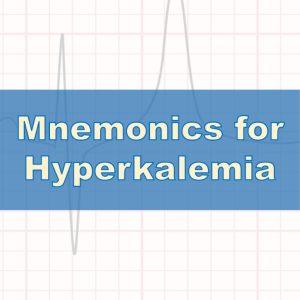Newsletter Heart Block Poem Heart Block Poem: 1st, 2nd, 3rd...
Read More- Newsletter
Optavia Ruined My Life
Optavia Ruined My Life: The Dangers of Extreme Dieting and Quick Fixes
In the pursuit of a healthier and fitter lifestyle, many individuals turn to various diet programs and weight loss solutions. One such program that has gained popularity is Optavia. Marketed as a comprehensive weight management system, Optavia promises quick results through its structured meal plans and pre-packaged meals. However, beneath the shiny marketing and seemingly easy weight loss lies a dark side that can have devastating consequences on both physical and mental well-being. In this article, we will explore the potential dangers of extreme dieting and quick fixes like Optavia.
The Allure of Optavia
Optavia’s appeal lies in its simplicity. Participants are provided with pre-portioned, pre-packaged meals and support from coaches who guide them through the program. The convenience of not having to plan or prepare meals makes it attractive to those with busy lives. Additionally, the promise of rapid weight loss and the before-and-after success stories can be very tempting to individuals struggling with their weight.
The Downside of Extreme Dieting
While Optavia may yield rapid weight loss initially, it is crucial to understand that extreme dieting approaches can have harmful consequences on the body and mind. Such drastic calorie restriction may lead to nutrient deficiencies, muscle loss, slowed metabolism, and hormonal imbalances. Additionally, when the body is deprived of essential nutrients, it becomes more susceptible to illnesses and compromised immunity.
Furthermore, extreme diets can foster an unhealthy relationship with food. Participants might develop an obsession with counting calories, an intense fear of gaining weight, or a cycle of disordered eating habits like bingeing and purging. This harmful psychological impact can have long-lasting effects on mental health, self-esteem, and body image.
The Rebound Effect
After completing the Optavia program, many individuals experience the dreaded “rebound effect.” This phenomenon occurs when the lost weight quickly returns, often leading to a cycle of yo-yo dieting. The body’s metabolism becomes sluggish after extended periods of low-calorie intake, making it more challenging to maintain weight loss in the long term. As a result, many people end up regaining the weight they worked so hard to lose, and sometimes even more.
The Downside of Extreme Dieting
While Optavia may yield rapid weight loss initially, it is crucial to understand that extreme dieting approaches can have harmful consequences on the body and mind. Such drastic calorie restriction may lead to nutrient deficiencies, muscle loss, slowed metabolism, and hormonal imbalances. Additionally, when the body is deprived of essential nutrients, it becomes more susceptible to illnesses and compromised immunity.
Furthermore, extreme diets can foster an unhealthy relationship with food. Participants might develop an obsession with counting calories, an intense fear of gaining weight, or a cycle of disordered eating habits like bingeing and purging. This harmful psychological impact can have long-lasting effects on mental health, self-esteem, and body image.
The Rebound Effect
After completing the Optavia program, many individuals experience the dreaded “rebound effect.” This phenomenon occurs when the lost weight quickly returns, often leading to a cycle of yo-yo dieting. The body’s metabolism becomes sluggish after extended periods of low-calorie intake, making it more challenging to maintain weight loss in the long term. As a result, many people end up regaining the weight they worked so hard to lose, and sometimes even more.
How does Optavia work?
Optavia is a weight management program that focuses on promoting weight loss through a combination of portion-controlled meal replacements, supportive coaching, and lifestyle changes. Please note that program details and offerings might have evolved since then, so it is essential to refer to the latest information from official sources to get accurate and up-to-date details on how Optavia works.
Here’s a general overview of how Optavia typically worked:
1. Meal Replacements: Optavia provides participants with a range of pre-packaged, portion-controlled meal replacements, including bars, shakes, soups, and other snacks. These meals are formulated to provide specific macronutrient ratios and a controlled number of calories, which can vary depending on the specific program participants choose.
2. Different Plans: Optavia offers several plans designed to cater to different weight loss goals and preferences. Participants can select from various plans, ranging from more aggressive weight loss programs to less restrictive maintenance plans.
3. Health Coaches: A unique aspect of Optavia is its use of health coaches, also known as “Optavia Coaches.” Participants are assigned a personal coach who offers support, guidance, and accountability throughout the program. Coaches help participants with setting goals, creating meal plans, providing encouragement, and addressing any challenges they may face during the process.
4. Habits of Health: Optavia emphasizes adopting “Habits of Health,” which includes promoting lifestyle changes that go beyond just weight loss. This approach aims to foster sustainable healthy habits in areas like nutrition, exercise, sleep, and stress management.
5. Three Components: The Optavia program typically consists of three components: a. Optimal Weight 5 & 1 Plan: The core component, which involves consuming five Optavia meal replacements and one “lean and green” meal per day. The lean and green meal consists of lean protein and non-starchy vegetables prepared according to specific guidelines. b. Optimal Health 3 & 3 Plan: A maintenance plan that involves consuming three Optavia meals and three balanced meals each day. c. Optimal Health 3 & 3 & 3 Plan: An advanced maintenance plan where participants aim to strike a balance between three Optavia meals, three balanced meals, and three healthy snacks daily.
6. Community Support: Optavia emphasizes building a community of support through social media groups, online forums, and other platforms. Participants can connect with each other, share experiences, and find encouragement from like-minded individuals.
What are the dangers of Optavia?
While Optavia may have worked for some individuals, it is crucial to be aware of the potential dangers and drawbacks associated with the program. So people say ”Optavia ruined my life”. It’s important to note that individual experiences can vary, and some people may not experience any negative effects. However, the following are some potential dangers and concerns associated with Optavia:
1. Very Low-Calorie Diet: Optavia is a very low-calorie diet (VLCD) program, particularly during the Optimal Weight 5 & 1 Plan phase. VLCDs can lead to rapid weight loss, but they are generally not recommended for extended periods due to potential health risks. Severely restricting calorie intake may result in nutrient deficiencies and compromise the body’s ability to function optimally.
2. Nutrient Deficiencies: The pre-packaged meal replacements provided by Optavia may lack essential nutrients despite being fortified. Relying solely on these meal replacements can potentially lead to deficiencies in vitamins, minerals, and other essential nutrients, which may negatively impact overall health.
3. Muscle Loss: Rapid weight loss achieved through VLCDs like Optavia can lead to muscle loss along with fat loss. Losing muscle mass can lower metabolism and make it more challenging to maintain weight loss in the long term.
4. Gallstones: Rapid weight loss, especially in overweight or obese individuals, can increase the risk of developing gallstones, which are small, solid particles that form in the gallbladder.
5. Slowed Metabolism: Prolonged calorie restriction can lead to a slowed metabolism, making it easier to regain weight once regular eating patterns are resumed.
6. Lack of Individualization: Optavia’s one-size-fits-all approach may not take into account an individual’s unique health needs, medical conditions, or dietary preferences. What works for one person may not be suitable for another, and some individuals may require more personalized nutrition and medical guidance.
7. Potential for Disordered Eating: Strict dieting and focus on calorie counting may lead to an unhealthy relationship with food. Some participants may develop disordered eating habits like bingeing, purging, or extreme guilt associated with eating outside the program’s guidelines.
8. Sustainability: The structured nature of Optavia may make it difficult for some individuals to sustain the program in the long term. Once individuals stop using Optavia products, they may struggle to maintain their weight loss without adequate education on healthy eating habits and portion control.
9. Lack of Whole Foods: The reliance on pre-packaged meal replacements may discourage participants from consuming whole, fresh foods, which are essential for a balanced and nutritious diet.
The most significant side effect of Optavia, like other very low-calorie diets (VLCDs), is the potential for nutrient deficiencies. The program’s severe calorie restriction and reliance on pre-packaged meal replacements may lead to inadequate intake of essential vitamins, minerals, and nutrients, which can have adverse effects on overall health and well-being. However, it’s important to note that individual experiences may vary, and it is always recommended to consult with a qualified healthcare professional before starting any weight management program. For the most up-to-date and accurate information on Optavia’s side effects, please refer to the latest resources and consult with a healthcare provider.
Do Doctors recommend Optavia?
There is no unified stance among medical professionals regarding Optavia or other very low-calorie diets (VLCDs) like it. The opinion of doctors on Optavia may vary depending on several factors, including an individual’s health status, weight loss goals, and medical history.
Some doctors and healthcare professionals may recommend Optavia or similar weight management programs for certain individuals who are overweight or obese and need to lose weight for health reasons. These programs can provide structure and support, making it easier for some people to adhere to a calorie-restricted diet.
On the other hand, some doctors may be cautious about recommending VLCDs like Optavia due to concerns about potential nutrient deficiencies and other health risks associated with extreme calorie restriction. They may prefer more balanced and sustainable approaches to weight management that prioritize long-term health and well-being.
Before starting any weight loss program, including Optavia, it is essential to consult with a qualified healthcare professional, such as a registered dietitian or a physician, who can assess your individual health needs and provide personalized recommendations. They can help determine whether Optavia is suitable for you or suggest alternative approaches that align with your health goals.
Keep in mind that medical recommendations and practices may have evolved, so it is crucial to seek the most current advice from medical professionals or reputable sources to make informed decisions about weight management and health.
Conclusion
While Optavia may have worked for some individuals, it is crucial to recognize the potential dangers of extreme dieting and quick-fix weight loss solutions. The allure of rapid results should not blind us to the possible long-term harm they can cause to both physical and mental health. To achieve sustainable and healthy weight management, it is essential to adopt a balanced approach, emphasizing a nutritious diet, regular exercise, and professional guidance. Remember, your health and well-being should always be the top priority on your journey to a better you.
Causes of Hyperkalemia
Newsletter Remembering Hyperkalemia: An Essential Mnemonic for Medical Professionals Hyperkalemia...
Read MoreABC Nursing – Airway, Breathing, Circulation
Newsletter ABC in Nursing – Assessment & Priority ABC in...
Read MoreHypocalcemia Mnemonic
Newsletter Hypocalcemia Mnemonic Mnemonics in Hypocalcemia It can be a...
Read MoreHyperkalemia Mnemonic
Newsletter Hyperkalemia Mnemonic Mnemonic for Hyperkalemia It can be a...
Read More- Library







